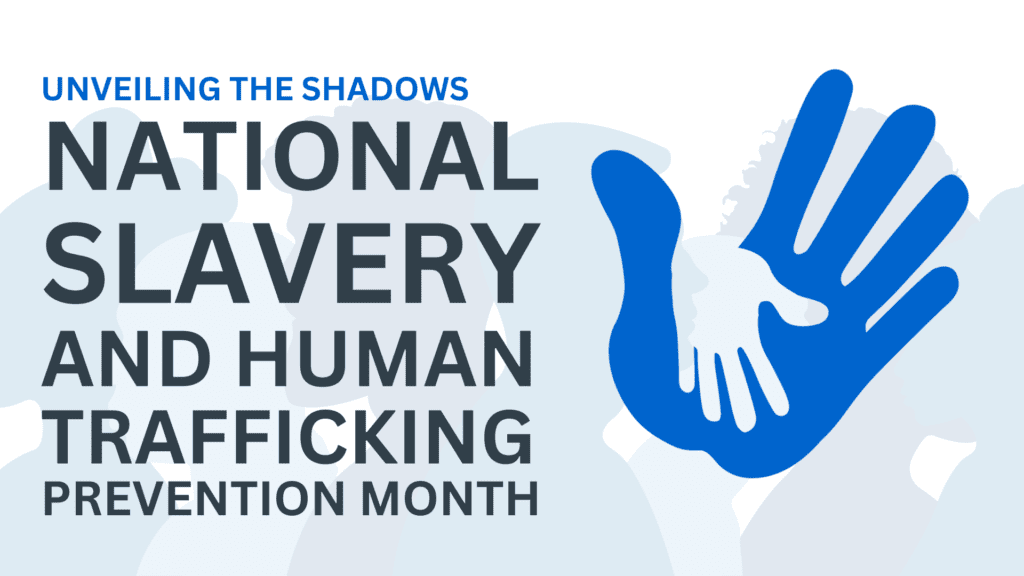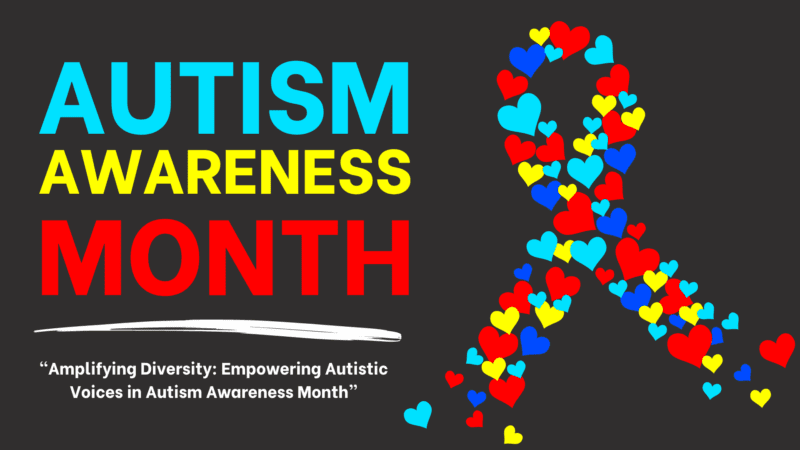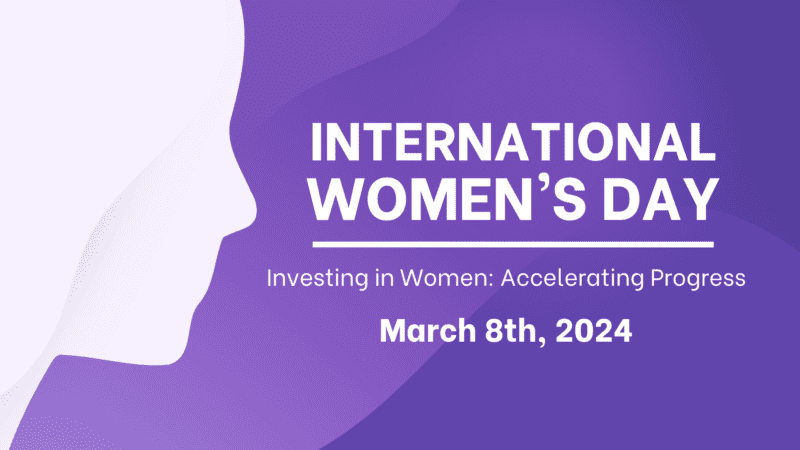
January is not only a time for new beginnings but also a solemn reminder of the persistent issue of slavery and human trafficking. Since 2010, January has been recognized as National Slavery and Human Trafficking Prevention Month. This month places a spotlight on the grotesque crime of human trafficking and slavery that still exists today and allows for communities across the country to come together on behalf of victims and survivors to end it once and for all.
What is Human Trafficking:
Human trafficking is a global problem that knows no borders, affecting millions of men, women, and children worldwide. It is a form of modern-day slavery where individuals are exploited for forced labor, sexual exploitation, or involuntary servitude. National Slavery and Human Trafficking Prevention Month provides an opportunity to shed light on the dark corners of this hidden crime, educating the public about its prevalence and encouraging communities to take a stand against it.
One crucial aspect of preventing human trafficking is understanding its root causes and manifestations. Poverty, inequality, lack of education, and vulnerability make individuals susceptible to trafficking. By addressing the systemic issues, society can create a more resilient environment that empowers people and reduces their susceptibility to exploitation.
Education is Power:
Education and awareness play a pivotal role in the fight against human trafficking. During this month, organizations, activists, and communities come together to disseminate information about the signs of trafficking, the methods perpetrators use, and the resources available for victims. Public awareness campaigns aim to equip individuals with the knowledge needed to identify and report potential cases, fostering a sense of responsibility within communities.
Collaboration among governments, law enforcement agencies, non-profit organizations, and the private sector is essential in preventing and combating human trafficking. National Slavery and Human Trafficking Prevention Month serves as a catalyst for these stakeholders to strengthen their partnerships, share best practices, and develop comprehensive strategies to eradicate trafficking networks.
Advocacy for a Better World:
Advocacy is a powerful tool in effecting change. Citizens are encouraged to use their voices to call for stronger legislation, better survivor support services, and increased resources for law enforcement agencies to combat human trafficking effectively. By engaging in conversations, spreading awareness on social media, and participating in community events, individuals can contribute to the momentum needed to bring an end to this grave violation of human rights.
Resources:
As we observe National Slavery and Human Trafficking Prevention Month, let us commit ourselves to dismantling the chains of modern-day slavery. By raising awareness, fostering collaboration, and advocating for change, we can build a world where every individual is free from the shackles of exploitation, and their inherent dignity is protected and respected.
Below are a list of resources you can access to learn more about human trafficking, how to fight against it, and resources for survivors:
- Polaris Project (https://polarisproject.org/): Polaris is a leading organization in the fight against human trafficking, providing resources, research, and support services. Their website offers a wealth of information, including statistics, survivor stories, and ways for individuals to get involved in the movement.
- Blue Campaign (https://www.dhs.gov/blue-campaign): The U.S. Department of Homeland Security’s Blue Campaign is a national public awareness campaign dedicated to combating human trafficking. Their website provides educational materials, toolkits, and resources for various stakeholders, including law enforcement, healthcare professionals, and the general public.
- Human Trafficking Hotline (https://humantraffickinghotline.org/): Operated by Polaris, the National Human Trafficking Hotline is a confidential and toll-free hotline available 24/7. The website offers resources for recognizing and reporting trafficking, as well as assistance for victims seeking help.
- Not For Sale (https://www.notforsalecampaign.org/): Not For Sale is a global organization working to end modern slavery and exploitation. Their website includes educational resources, reports on human trafficking trends, and information on projects aimed at preventing and combating trafficking.
- United Nations Office on Drugs and Crime (UNODC) – Human Trafficking (https://www.unodc.org/unodc/en/human-trafficking/index.html): The UNODC is a key international organization addressing human trafficking. Their website provides comprehensive information on global efforts to combat trafficking, including relevant publications, reports, and tools for policymakers and activists.





